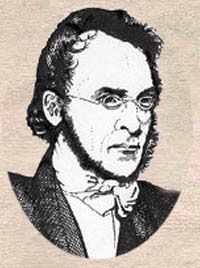Tuesday

A great distinction
In his meditations on the growing tension and eventual war between the North and the South, Orestes Brownson favored the South's “personal democracy,” which he contrasted with the North's “humanitarian democracy.”
The South's personal democracy recognized the individual's freedom within a local order that emphasizes virtue. The North's humanitarian democracy emphasized the abstractions known as “man” and “progress” and favored centralized social programs to further that abstraction and a better future, even if that meant tramping on the rights of territorial democracy and individual men. “The humanitarian is carried away by a vague generality, and loses men in humanity, sacrifices the rights of men in a vain endeavor to secure the rights of man.” Perhaps the biggest problem with the humanitarian democrat, Brownson said, is the tendency to erect the abstraction “Man” or “Rights of Man” as an ideal which does not correlate to concrete reality. As a result, the humanitarian reformer tries to force society, individuals, and their communities (real things) into a product of the imagination, an idealism that isn't real except in the minds of the reformers.
Nearly one hundred years later, Eric Voegelin, in his writings about gnosticism, would parallel Brownson's concerns about humanitarian democracy. Voegelin contributed greatly to our understanding of the totalitarian savages that have menaced our world for the past two hundred years. The intellectual root of these savages, Voegelin said, is gnosticism, a mindset that claims absolute mastery of ultimate truth, but, because ultimate truth cannot be mastered, is always delusional because its “ultimate truth” in reality is just a false ideology (i.e., something the mindset can master). The false ideologies are legion, but Voegelin would have listed Brownson's “humanitarian democracy” among them, another “dream world” reality, to use Voegelin's term. Voegelin repeatedly warned that the gnostic tries to “force thought and action along perversely mistaken lines with disastrous consequences for rational politics and policy.” In his most well-known book, The New Science of Politics, Voegelin wrote: “Gnostic thinkers, leaders, and their followers . . . in so far as they apply their fallacious construction to concrete social problems . . . misrepresent the structure of immanent [earthly] reality [and] these errors with regard to the structure of reality have practical consequences when the false conception is made the basis for political action.”
